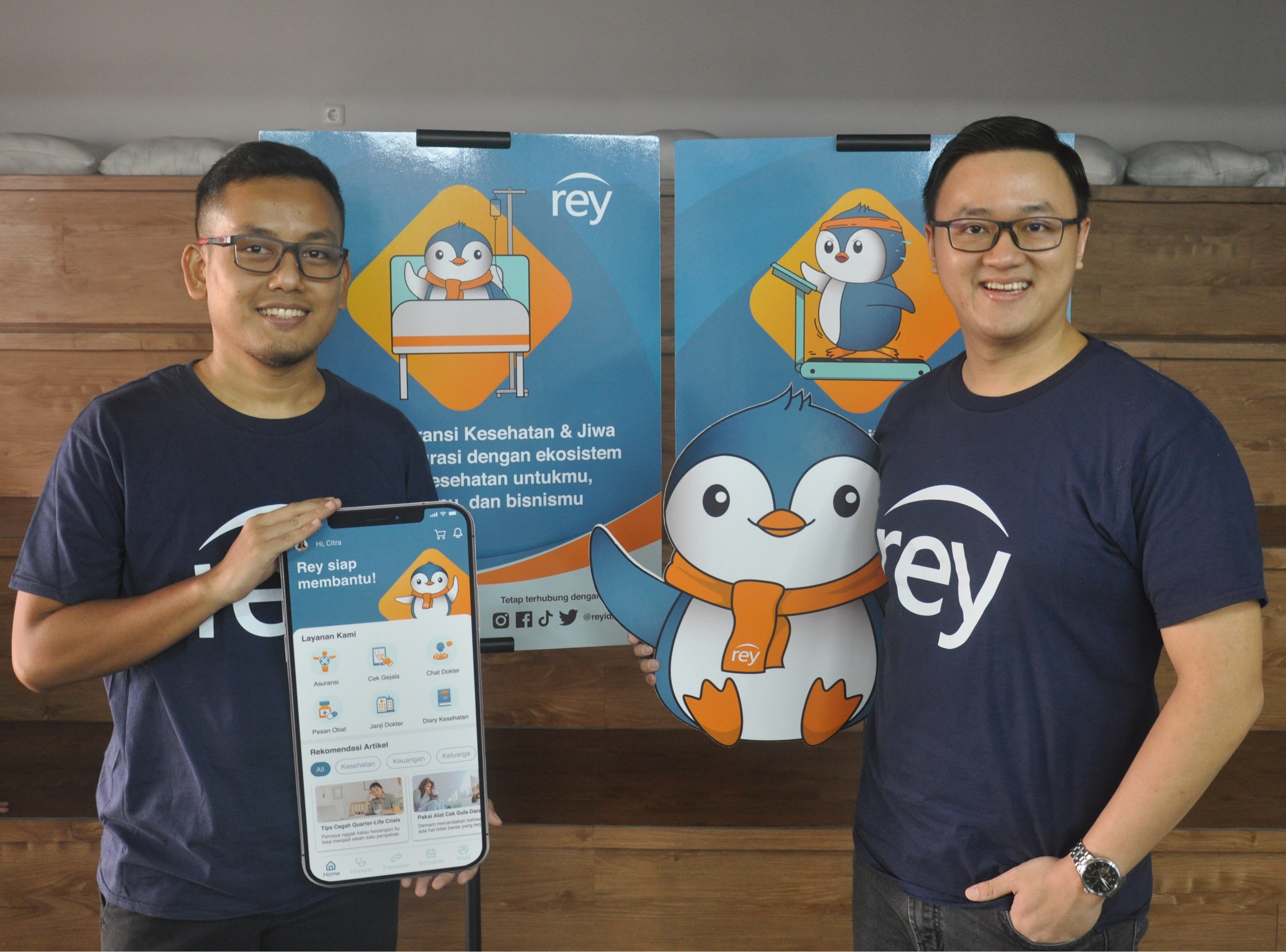
Rey Assurance co-founders Bobby Siagian and Evan Tanotogono
Health insurance cover is the kind of thing families usually only think about only when they need it. Otherwise, any policies are just paperwork inside their files or cards during their wallet. Indonesian insurtech Rey Aisance is any new approach. Once someone becomes a member, they also access a platform of fitness services, including AI-based self-assessment tools, 24/7 telemedicine examen for no added value and pharmacy deliveries. The startup is launching from stealth today, having early raised $1 million in pre-seed funding from the Trans-Pacific System Fund (TPTF).
Rey was founded this year written by Evan Tanotogono, former skull of digital channel for Sequis, one of Indonesia biggest insurers, and Bobby Siagian, who held lead construction roles at companies this includes Tokopedia and Sea Number. They are joined by comprehensive industry veteran David Nugrho as their chief business professional.
They published Rey to address the low puncture of life and insurance policy coverage in Indonesia. “When looking for at the root causes and torment points, you are looking at problems that should be systemic here, ” Tanotogono said. These include low expertise, expensive distribution channels your agents and telemarketing, greater premiums and complicated insurance.
“People want the product is really complex, method is difficult and they fail at this get the best value for the money. It is the perfect been that way for many, ages, ” he told TechCrunch. “We believe that we must not just go into the market as well as the digitize part of the value cycle. ”
Plans start from close to $4 USD per month then are available for sole or groups, like family members, and small businesses. Rey’s wellness ecosystem was created to give target market more value for their money, which help differentiate it from other employers in Indonesia’s growing insurtech industry. Some other startups which use recently raised funding name Lifepal , PasarPolis and consequently Qoala .
“Right now, if you look at insurance near Indonesia, if the premium is usually high, maybe 80% properly 90% of that is used for a distribution channel. Now if we optimize something for photographic camera distribution, then we can reduce your price and use the slumber for the wellness features, ” Tanotogono added.
TPTF organizing partner Glenn Kline advised TechCrunch that Rey’s starting up team was “really some of the driver” for its investment. “We felt these people really be familiar with where the pain points ‘re and they understand clearly so how not to try to change the heritage system, but create a totally new platform from the very beginning, and the core value proposition may possibly be integrated solution that is simple and easy hassle-free. ”
Instead of doing the underwriting ourselves, Rey works with insurance spouses to design proprietary policies. Of the goal is to have an onboarding process that is completely as well as only takes about five minutes, in addition mostly cashless claim and even reimbursement system through Rey’s payment cards. If your payment card can’t be worn at healthcare provider, claims is generally submitted by uploading invoice photos to the app.
Tanotogono said get rid of much faster than traditional insurance agencies, which can take up to two week working days to reimburse per claim, and made possible by having Rey’s proprietary claim vente technology.
Rey’s wellness ecosystem currently talks about primary care services, counting chats and video refers to as with medical providers. In the foreseeable future, it plans to add proefficinents to the platforms.
Customers can also link this health wearables for bonuses. For example , if they hit sure step or activity goal setting, they get rewards places discounts or shopping deals. Rey’s long-term plan often link wearables more deeply that would its insurance policies, using documents to personalize policies and also premiums.






